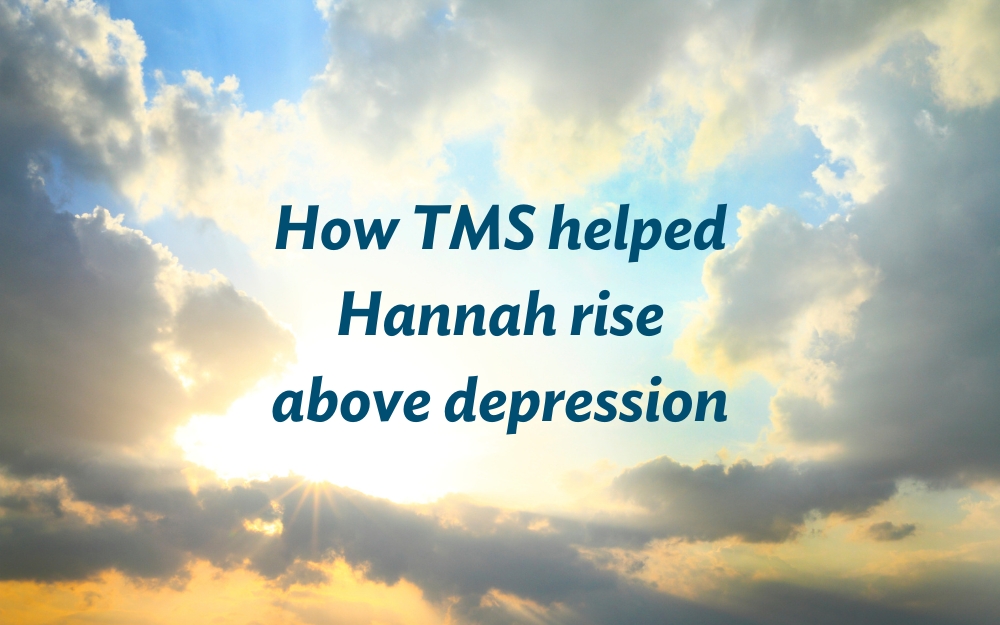Hannah says throughout her father’s two-year battle with cancer, she was experiencing her own battle with depression.
“I realized a huge life event or tragedy can trigger it,” says Hannah.
Hannah saw her primary care physician and says that although her doctor was trying to help, she was not getting any better.
“I took seven different anti-depressants over a period of three months,” she says. “That really messed with my metabolism and hormones.”
Hannah says when she started having suicidal thoughts she knew she needed to do something.
“I told my mom and she got me into a psychiatrist who was great,” she says. “The psychiatrist told me I had adult onset severe depression and we needed to get my medication straightened out. I had been taking it only when I felt depressed and not consistently every day at the same time.”
In addition to the medication, Hannah’s psychiatrist also recommended trying transcranial magnetic stimulation, or TMS.
What is TMS?
“TMS is an FDA-approved treatment technique for those struggling with major depressive disorder (MDD),” says Tyler Rickers, DO, psychiatrist, director of Rogers’ TMS services. “A machine uses targeted magnetic pulses to stimulate the prefrontal cortex region of the brain, which is underactive in patients suffering from depression.”
While undergoing TMS treatment, it’s important for patients to attend all of their sessions. Hannah prioritized her mental health and took FMLA in order to do TMS Monday through Friday and once on the weekends for nine weeks.
“The actual TMS took 30 minutes after maybe 15 minutes to set up the machine,” she says. “I had doubts at first and wondered if it was a gimmick. Why wouldn’t more people do it if it works?”
Benefits of TMS therapy
Brain scans show TMS was successful, and Hannah continues to experience the benefits.
“The picture on the far left is my brain when I started,” she explains. “The yellow in the other scans shows new electromagnetic activity where there was previously none. TMS stimulated areas of my brain that had been inactive. You wait for a burst of euphoria but it wasn’t anything like that. Instead, I was steadily improving, not regressing. I was slowly building upwards. My work performance improved, I was able to sleep because my anxiety wasn’t so bad, and I can honestly say it helped me immensely.”
“Research shows that approximately 1 in 2 patients will experience a significant reduction in depressive symptoms after using TMS, and 1 in 3 individuals will reach complete remission from major depressive disorder (MDD),” says Dr. Rickers.
For questions related to TMS therapy, contact our admissions department at 800-767-4411 for a free, confidential screening.


